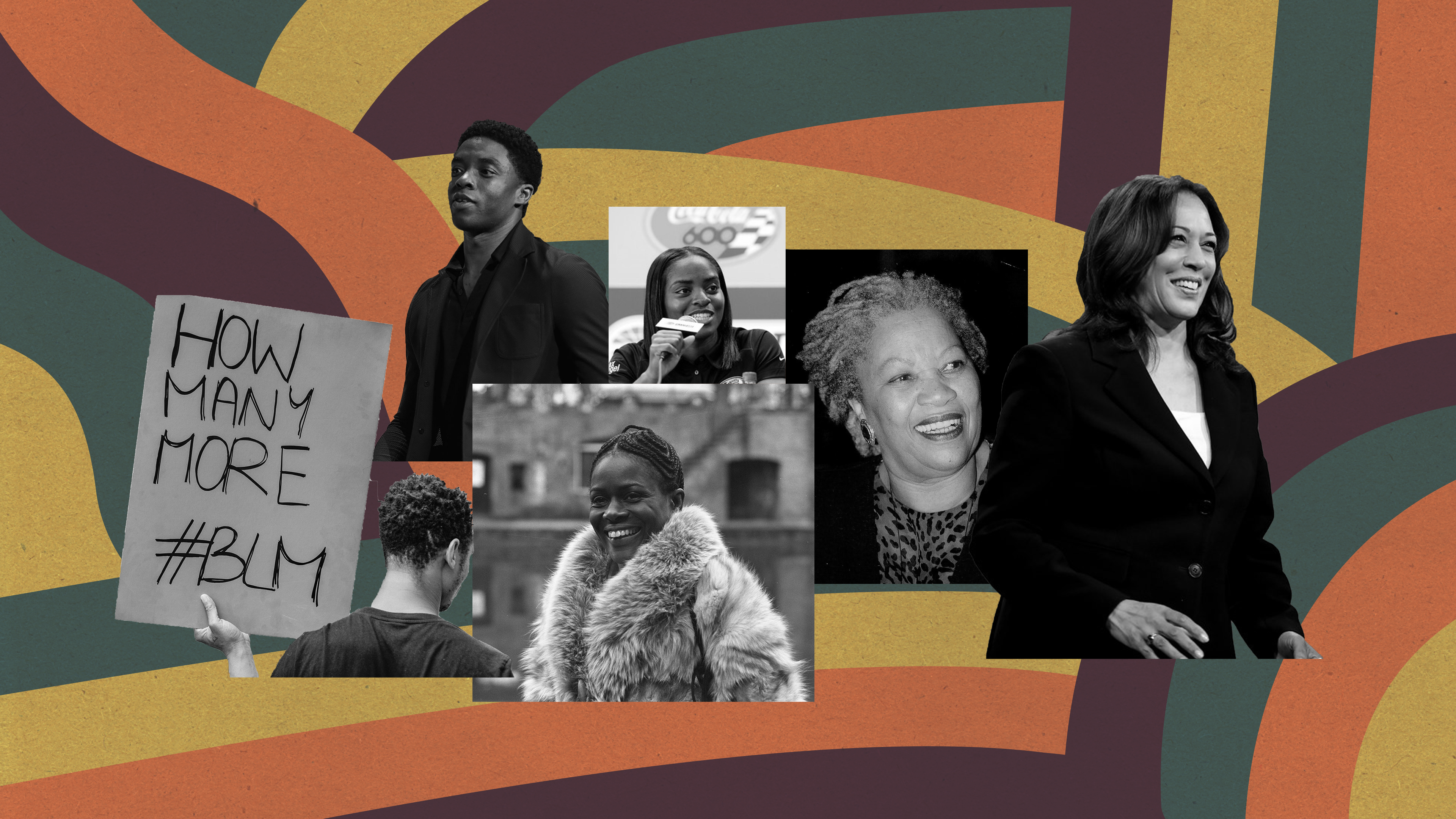
We Are Magic, Especially in a Pandemic
The achievements of the Black diaspora in the past year are that much more remarkable due to the specific challenges the community has faced.
The Black History of the past seems to be leaving us. We recently lost Cicely Tyson, Chadwick Boseman, and Toni Morrison. We’re heading into an era where the familiar icons of the past are actually history, and new paths have to be paved. American dominant culture may have thought that racism was in the past due to various events, including the tenure of former President Barack Obama, but the disparities in mortality rates that Black people currently face due to both the physical and mental consequences of racism show the contrary. That’s why Black people who are successful in their careers right now are so highly revered by their community.
The killing of George Floyd — filmed on camera and shared with the world — finally brought non-Black people to a new level of acceptance of overt protest against racial injustice. And as hundreds of thousands of people across the globe marched, #BlackLivesMatter went from being a militant statement to a branding strategy in the eyes of corporations. It became trendy to stand symbolically and physically in solidarity with Black people. Black squares filled Instagram feeds. Social media at large was filled with explanations of various social causes. Beauty brands and tech giants alike announced sweeping diversity commitments. Black history started being recognized and seen without needing a Black celebrity attached to it. In the past, only Black celebrities were even marginally recognized and dignified, but now, to quote Issa Rae’s famous CFDA fashion award dress, “Every n***a is a star.”
Let’s give context as to why the success of Black people is outstanding. Black people have been historically colonized and looted for hundreds of years. We were taken from our homes and cultures and inhumanely used as free labor. Our infrastructures were ravaged due to greed. Once colonialism and slavery were abolished in name, Black people had to overcome lawful oppression to create a better future for themselves. Even when making their own way by creating successful businesses and colleges, Black people dealt with non-Black groups that attempted to bring them down every chance they got.
Once oppression was not acceptable in a de jure sense anymore, terms like “ghetto” and “culture fit” were continually used to reformat the barrier of exclusivity that keeps Black people from high-paying employment. (Google was just called out for its discrimination against Black interns and employees.) And the discrimination trickles down to the biological health outcomes of Black people today. Black people are still three times more likely to die from COVID-19, police violence, and childbirth. The Flint water crisis shows how Black Americans struggle to even access clean water — they had to ask for five years straight — yet another example of how Black people are used as the scapegoats for the environmental degradation industrialism creates. Food deserts born from economic inequities constantly leave Black families with horrible nutritional options. We need all of the encouragement and championing we can get.
Black people have had to jump way more hurdles than others to achieve the greatness they have. While still being disproportionately negatively affected now — whether it be from COVID and classism or police violence and adultification — we still set the standard in many industries, such as entertainment and public policy. That’s why this particular Black History Month is so special — it celebrates the resilience of the diaspora in spite of what is against us. The struggles are real, but still we rise.
And Black history hasn’t always been so easily chronicled. We have had to fight to have African American studies departments be created and funded at American universities. Media and entertainment has been historically whitewashed management-wise, leading to a lack of amplification of Black excellence. And education institutions still follow suit — families are currently revolting against teaching Black history to their kids in public schools. The intentional erasure of Black history allows for Blackness to be easily demonized by white supremacy for white people to benefit.
But now social media is a de facto archive of historical and social shifts every day. It notifies people globally about Black excellence and triumph in an accessible way. In that, it shares how Black people are still achieving “firsts” today. There is much Black success to celebrate that Black people achieved during the pandemic, like breaking public service glass ceilings and dominating popular music charts. And while conservatives would argue that these outcomes are just the result of people working hard, regardless of their race, history shows the contrary.
So our achievements deserve extra recognition. We have to celebrate that, in the midst of the pandemic, the first female U.S. Vice President is partially Black. Kamala Harris achieved an enormous feat that provided extensive representation for Black generations to come. Black athletes have played a key role in securing nationwide representation. WNBA teams such as the Minnesota Lynx and the Atlanta Dream were key to galvanizing usually reluctant citizens to vote to obtain civil representation that works for them. The first Black female NASCAR pit crew member Brehanna Daniels opened the door for more diversity in racing. All of the work of these Black achievers brought positive change.
Black entertainment has also uplifted the nation at large. Verzuz provided all online with a club atmosphere that is currently too unsafe to experience in person, but is just as fun. Beyoncé’s “Black is King’’ spotlighted the beauty of the Black diaspora through a Disney classic while becoming critically acclaimed. Black people also stood out in the drama department thanks to Zendaya and Viola Davis. Zendaya is the second Black female to win the Emmy for “Best Actress.” Viola Davis brought excellence into her role as Ma Rainey in Ma Rainey’s Black Bottom and has garnered Golden Globe nominations, SAG awards, and more. All of this is not only outstanding, but mind-blowing when considered in context.
It’s been hard for Black America. The country shortchanged us even before bringing us here here against our will, and built itself on the exploitation of our labor. As we gradually gained rights, America continually gave its best to stifle our advancement. We’ve created our own spaces while still excelling in established platforms in retaliation. And this past year has brought much pain as well. Even right now, we are disproportionately at risk to be exposed to and die from COVID. Black people — and especially Black women — have been disproportionately affected by the pandemic’s unemployment crisis. But in this dark time, our suffering shouldn’t be solely highlighted to provide trauma porn.
Centering the accomplishments of Black people actively counteracts the stereotypes pushed on them through proper representation. Of course optics do not fix systemic issues. Black people built this country, so the only real way to have a truly equitable country is to completely demolish the current system and create a new one. But representation sparks conversation about how to start doing the rebuilding.
We deserve all the more to be uplifted for the greatness we continue to provide to the world. We are achieving so much because of our innate grit and ingenuity. We’ve shaped every major institution this country has, and we’re just getting started. Our impact deserves more mainstream focus than our struggle. I want that narrative to be publicized. We surely haven’t arrived yet in terms of equity, but we have come so far. And we shall overcome.


